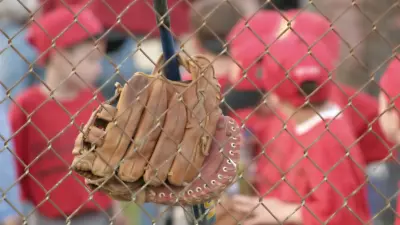From elite club teams to year-round training, kids today are entering the world of sports earlier—and more intensely—than ever before. Parents are told that early specialization is the path to scholarships, success, and future stardom. But is that actually true?
According to Olympic legend Karch Kiraly, the answer is a firm (but kind) no.
In a powerful conversation on The Gabby Reece Show, Kiraly—one of the most decorated athletes in history and current coach of the U.S. Women’s National Volleyball Team—shared his perspective as both a world-class competitor and a father.
Here’s why early specialization may not be the slam dunk you think it is—and what you should do instead.
The Myth of Early Specialization
Many parents believe that starting young and focusing on just one sport gives kids a competitive edge. But the research (and real-life experience from top athletes) tells a different story.
Early specialization can actually increase:
- Burnout and mental fatigue
- Overuse injuries (especially in growing joints and bones)
- Pressure that steals the joy from the game
“There are huge benefits to playing a variety of sports,” says Kiraly. “It leads to healthier athletes who are less prone to injuries.”
Why Multi-Sport Athletes Often Go Further

Trying multiple sports helps kids:
- Build diverse motor skills
- Learn how to move on different surfaces (grass, court, water, etc.)
- Reduce injury risk by avoiding repetitive trauma
- Discover what they truly enjoy
Kiraly himself credits his soccer background for making him a smarter volleyball player. “Soccer taught me to see space—to pass the ball where a teammate is going, not just where they are. That absolutely shaped how I set in volleyball.”
Timing Matters: There’s No Rush
Kiraly didn’t play in formal volleyball tournaments until he was 11—and he didn’t specialize until much later. His own sons weren’t steered toward volleyball at all. They played baseball, soccer, and basketball before choosing volleyball themselves in middle school.
“We weren’t interested in forcing our boys to play volleyball,” Kiraly explains. “We wanted them to try different things—and find something they loved.”
That sense of choice, he says, is what sustains passion and long-term commitment.
What the Research Says
- A 2020 study in the Orthopaedic Journal of Sports Medicine found that young athletes who specialize in a single sport are 81% more likely to experience overuse injuries.
- The NCAA has also reported that multi-sport athletes have a higher chance of success at the collegiate level due to better adaptability, reduced burnout, and more balanced skill development.
What Parents Should Do Instead
Here’s a more sustainable approach to supporting your child in sports:
Play For the Love of the Game(s)!
Specialization might sound like the fast track—but for most kids, it’s a shortcut to burnout, not greatness.
Instead, let your child explore. Let them play. Let them fall in love with movement, teamwork, and the thrill of the game. The best athletes? They’re the ones who play for joy—long before they ever play for medals.
“If every generation did just a little less pushing and a little more supporting,” Kiraly says, “we’d be making good progress.”
More on TodaysMama.com
The Long Game: What College Coaches Wish Parents Knew About Youth Sports
Podcast Episode: Riley Jenson, Sports Psychologist on Mindset and How We Talk to Ourselves








Leave a Reply